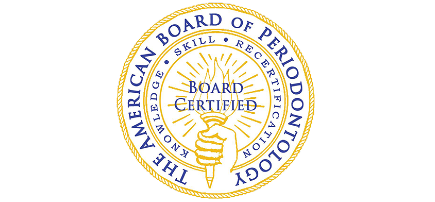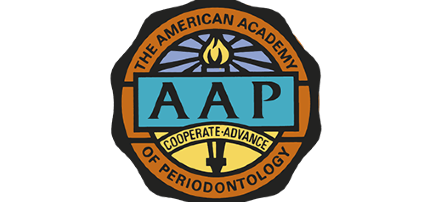- Surgical procedures will be performed under local anesthesia. You have the option of choosing nitrous oxide, oral or IV sedation, to make you more relaxed during treatment. Please read sedation instructions if you have chosen one of these options.
- Advise your doctor of any medications you are currently taking. Continue taking daily medications (insulin, blood pressure pills, etc.) in your regular dosage unless otherwise instructed.
- If you have been advised by your physician or dentist to use antibiotic pre-medication for reasons including but not limited to mitral valve prolapse (MVP) and joint replacement, or if you have rheumatic heart disease, please make sure you take the appropriate antibiotic one (1) hour before your appointment.
- If blood thinning medication is prescribed by your physician, such a Coumadin or Plavix, you must consult with your physician regarding when to stop and resume your medication.
- If you have elected not to have sedation, eat a light meal one hour prior to surgery. Do not come for your procedure hungry. Try to eat foods that are high in starch or sugar, such as muffins, cereal, bread or fruit.
- Do not drive or consume alcohol while taking sedation medications such as Valium, Ativan, or pain relieving medications such as Vicodin, Percocet, or Tylenol 3 until a minimum of 12 hours after last dosage.
- Have soft foods and ice packs ready at home.
ACTIVITY: After leaving the office, rest is recommended for the remainder of the day. Normal activities may be resumed the following day as tolerated. Avoid strenuous activity for one (1) week.
SWELLING: Some swelling may be present the day after the surgery and may peak at 48-72 hours after surgery. Swelling can be minimized by placing an ice pack over the operated area on the outside of the face alternating on and off in 10 minute intervals for 4-6 hours.
BLEEDING: Bleeding should be minimal. Do not use a straw, as suction can start bleeding. Gauze can be placed over the surgical site and pressure applied by biting down or finger pressure, changing at 30 minute intervals as needed. If bleeding has not decreased in two to three hours following these instructions, place a dampened tea bag over the surgical site. The tannic acid in the tea helps blood clot. If there is no change in the amount of bleeding call the office immediately.
EATING: For the first few days, soft foods should be eaten. Chewing should be done predominately on the side opposite the surgical site for 2 weeks. It is may be necessary to stick to liquids for the first day if chewing is uncomfortable.
CARE OF THE DRESSING: If a dressing has been placed over the surgical site, try to stay away from it for 2 weeks. The dressing is primarily for comfort. If the dressing should become loose or fall off, and there is no increase in the level of discomfort, it is O.K. to leave it off.
ORAL HYGIENE: It is important to maintain a normal level of oral hygiene in the non-operated areas by brushing and flossing. Avoid brushing and vigorous rinsing over the surgical site for 2 weeks. Do not use any over the counter mouth rinse, as some of their ingredients can impair healing. An antibacterial mouth rise will be prescribed, and you can begin rinsing 24 hours after surgery. Rinse twice daily for 30 seconds and then do not rinse or eat for one hour.
SMOKING: Please refrain from smoking for at least 24 hours after surgical procedure. Tobacco use interferes with the healing.
SUTURES: Sutures (“stitches”) are placed to hold the gingival tissues in the proper position for ideal healing. Do not disturb the sutures with your tongue, toothbrush or in any other manner since displacement will impair healing. The sutures will either loosen or dissolve on their own, or will be removed during your post- operative visit.
DISCOLORATION: In some cases discoloration of the skin (bruising) can occur. The development of black, blue, green, or yellow discoloration is due to blood spreading beneath the tissues. This is a normal occurrence, which may occur 2-3 days post-operatively. Moist heat applied to the area may speed up the removal of the discoloration.
MEDICATIONS: Post-operative pain will be the most severe the first day after surgery. It is beneficial to take your pain medication before your numbness wears off. If any adverse reactions to those medications should arise, such as nausea, itching, swelling, or any allergic symptoms, please contact the office and discontinue all medication immediately. Generally, two pain relieving medications are prescribed. Ibuprofen (Advil or Motrin) is a non-narcotic, anti-inflammatory pain killer. This medicine will help prevent swelling along with reducing pain.
Hydrocodone/acetaminophen (Norco) is a narcotic pain reliever and can be taken in addition to the ibuprofen, if there is still discomfort. Since Norco can cause drowsiness, it is best taken before bedtime if needed. Pain medication should be taken with food or milk products.
ANTIBIOTICS: If prescribed, take them as directed until ALL ARE GONE, as long as there are no adverse reactions or discomfort (itching, swelling, etc.).
SINUS PRECAUTIONS: If the sinus is entered during surgery, please refrain from blowing your nose for one week. If you need to sneeze, do so with your mouth open.
DENTAL IMPLANT PRECAUTIONS: If a dental implant is placed, avoid pressure or disturbance to that area for 3 months following surgery. Pressure placed on the dental implant can interfere with the bone healing process. If you have a temporary prosthesis, it will be adjusted to ensure no contact with the implant.
SPECIAL CONSIDERATIONS: Trismus (stiffness) of the muscles may cause difficulty in opening and closing your mouth for a period of days. This is temporary and can be relieved by taking anti-inflammatory medications (i.e. Advil or Motrin), and application of moist heat to the jaw.
COVID-19: Please report any signs or symptoms of COVID-19 within the next 2 days
Please update Pre Conscious Sedation Instructions and Post Conscious Sedation Instructions
(Most up-to-date information copied below)
ACTIVITY: Normal activities may be resumed the same day as tolerated. Avoid strenuous activity for one (1) day.
ORAL HYGIENE: Start brushing, flossing, and continue your customized oral hygiene regime immediately. Use light pressure for the first day when brushing your teeth and gums, but make every effort to keep your mouth plaque free.
DISCOMFORT: Some discomfort and soreness is expected when the anesthesia wears off. Usually over the counter pain medication such as acetaminophen (Tylenol) or ibuprofen (Advil) will alleviate the discomfort. Sensitivity to cold or touch may occur, but typically improves in the next 48 hours. Performing excellent oral hygiene regimen and using fluoride tooth paste can help reduce sensitivity during this period.
EATING: Your can return to a relatively normal diet. For the first week, avoid any hard, gritty foods such as pretzels, peanuts, popcorn, chips, hard bread or any food that can become trapped under the gums.
BLEEDING: Slight bleeding and oozing may continue for several hours following the procedure. If bleeding persists beyond a few hours, please call our office.
SWELLING: Very seldom does swelling occur. Swelling can be minimized by placing an ice pack over the operated area on the outside of the face for 4-6 hours alternating on and off at 10 minute intervals.
SMOKING: Please refrain from smoking for at least 24 hours. Tobacco use interferes with healing.
These instructions will help to make you as comfortable as possible. If you have any questions, please call our office. We are happy to assist.








